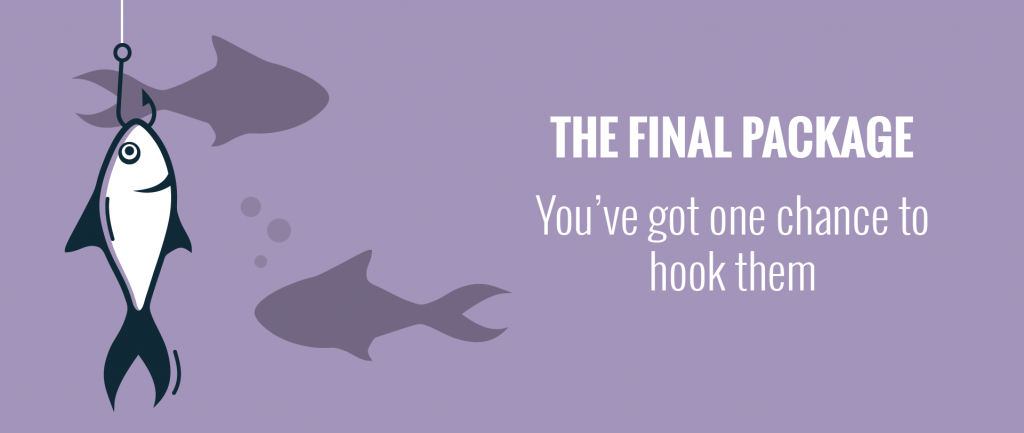
How To Promote A Podcast
Do you ever find yourself listening to morning talk radio, thinking about how great it would be to work as a DJ, broadcasting your conversations to the world and getting paid for it? You know you’d be good at it. You’ve got the voice, the wit, and more than enough interesting things to talk about. All you’re missing is an in with the radio station.
Well, what if I told you that you don’t need it, that you haven’t for quite some time. As user-generated content continues to become more prominent, well-made and well-promoted podcasts have become just as popular as mainstream radio shows, if not more so. But even now, comparing mainstream radio to podcasts creates a false dichotomy, for podcasts have gone pretty mainstream in the last decade. Pop culture icons like Kevin Smith, Adam Carolla, and Bill Simmons have all jumped on the podcasting bandwagon, and most people, by now, are at least aware of KCRW. Podcasts aren’t a fringe alternative to radio anymore, so for all you wannabe DJs who don’t have one of your own, what’s your excuse?
Okay… So maybe this is old news to you. Maybe you’ve been running a podcast of your own for years. Your problem is, nobody’s listening. Of course they’re not. Even if your message is a 21st century sermon on the mount, you can’t just stream it onto a half-assed WordPress and expect the masses to flock to listen. There are specific measures required in the creation, production, and promotion of your show that will make or break its success.  The best foundation for an effective podcast is compelling content. Draw upon your personal expertise and interesting knowledge. If you want more listeners, you need to approach the podcast from the perspective of those listeners. What’s in it for them? You need to do an in-depth self-appraisal to determine whether or not your content has a value and appeal to the outside world.
The best foundation for an effective podcast is compelling content. Draw upon your personal expertise and interesting knowledge. If you want more listeners, you need to approach the podcast from the perspective of those listeners. What’s in it for them? You need to do an in-depth self-appraisal to determine whether or not your content has a value and appeal to the outside world.
Don’t force a personality that doesn’t come naturally. If after a long look in this metaphorical mirror, you find yourself to be a generally dull person with nothing exceptional to say, that’s okay, but maybe you’re not destined to star in a hit podcast afterall. Don’t worry. There are plenty of ways to exercise your latent creative energy… like carpentry.
For the rest of you, it’s time to proceed to the next step: targeting. It’s easy for Adam Carolla to host a podcast where he discusses whatever crosses his mind, but odds are, if you’re reading this, you’re not Adam Carolla. You don’t have an audience at your beck and call. You have to go out and find it, and the best way to do this is to focus your appeal.
 Make the subject of your podcast clear and specific, like Welcome to Night Vale, a podcast that explores the supernatural happenings of a fictional small town. The podcast came out of nowhere, but delivered consistently interesting content to a targeted fan-base and has garnered a great deal of acclaim as a result.
Make the subject of your podcast clear and specific, like Welcome to Night Vale, a podcast that explores the supernatural happenings of a fictional small town. The podcast came out of nowhere, but delivered consistently interesting content to a targeted fan-base and has garnered a great deal of acclaim as a result.
Maybe your goal isn’t to develop an entire alternate reality, but if there’s anything to be learned from the hit podcast from Commonplace Books, it’s the value of finding an audience and pandering to it.
Lastly, you should do some preliminary research on existing podcasts, especially those related to your areas of interest. If there’s already a well-established podcast structured around your idea, it might be harder to build your own following. On the other hand, it’s hard to do market research on a topic that has few successful precedents. The trick will invariably be finding that balance between fad and frontier.
Once you’ve found your audience and focused your content, it’s time to think about the technical process of getting your word out there.  Recording the podcast is a pretty straightforward process, that will offer a return proportionate to how much money you are willing to invest.
Recording the podcast is a pretty straightforward process, that will offer a return proportionate to how much money you are willing to invest.
Most computers these days come with a built-in recording device, but you’ll get noticeably better sound quality from a third party microphone. From there, you can use a program like GarageBand or AdobeAudition to record audio, or you can take advantage of the fact that far superior open-source software like Audacity is offered for free online. Also, investing in a quality sound mixer will make your life a whole lot easier when it comes to editing the audio files.
You’ll want to convert all files into mp3 format, as it’s compatible with most site engines. But before you worry about publication, you will need another platform to host the files themselves. Luckily, you can do all of this through Google Drive.
Once you have the audio file, the next step is finding a platform to publish it. If you lack technical savvy and just want to get your content out there, then there are plenty of sites dedicated to hosting podcasts, but your best shot at wider recognition will come from managing your own blog. WordPress is a great resource for archiving and organizing your podcasts based on relevant keywords, but first you’ll need to download a plug-in: PodPress. You’ll also need to create your own category for Pocasts.
Under the box where you normally publish content, you should see the Podpress plug-in. It will look something like this:  Just upload your mp3 and customize your settings for itunes compatibility and you should be good to go, but before you wrap up on wordpress, don’t forget to go into the podcast category and copy your RSS feed. We will need that in a bit.
Just upload your mp3 and customize your settings for itunes compatibility and you should be good to go, but before you wrap up on wordpress, don’t forget to go into the podcast category and copy your RSS feed. We will need that in a bit.
It’s essential to dress up your blog to match the theme and tone of your content. The Broad Experience does a great job of offering aesthetic without distracting from the prime focus: the content. Also, by optimizing your blog for Google searches, you can lead web traffic straight to your podcast!
Once you’ve established a home base, it will be highly beneficial to get set up on a site like Feedburner, to help track your RSS feed. This is a great way to monitor your listener base and see how much attention your blog is actually getting. It’s easy to use, but here’s a step by step of how to do it:
- Start by typing your blog or feed address in the box under Burn a feed right this instant.
- Select I am a podcaster! and click Next
- Make sure your Feed Title and Address are correct, then click Next
- Your Feed is now Live! You will be given a link with the option to dress it up. For now, just click Next
- This will take you to the SmartCast, where you can optimize your SEO and visibility on major search engines
- Fill out all relevant information, including the Podcast image, title, summary, search keywords, etc. Once it’s all sorted, click Next.
- This will take you to Feedburner Stats, where you can customize exactly what metrics Feedburner will track for you.
- Select everything you’d like to keep track of and click Next
If done right, most of this should be a one time set-up that will run on autopilot as you continue to add more content to your podcast and blog. Once you feel confident that this is in order, it’s time to move on to the final phase, the trickiest and arguably most important part of the puzzle.  Promoting a podcast is an involved process, most of which pivots around developing an online presence outside of your blog. Become an active listener and contributor to other podcasts and blogs. By establishing yourself in a wider community, you can gain kind of web cred that will encourage like minds to explore your online footprint. You can make this easy for them by posting in forum with a link to your podcast in the signature.
Promoting a podcast is an involved process, most of which pivots around developing an online presence outside of your blog. Become an active listener and contributor to other podcasts and blogs. By establishing yourself in a wider community, you can gain kind of web cred that will encourage like minds to explore your online footprint. You can make this easy for them by posting in forum with a link to your podcast in the signature.
Join conversations and communities related to your content. If you’re trying to promote a horror movie podcast, boost your traffic by actively engaging the existing horror community. Comment on the latest news, attend film festivals, and provide strong positive feedback to other bloggers and podcast producers.
You can easily manage this outreach by putting together a strategy for podcatching. For most of you, who probably don’t know what podcatching is, it’s a process of consolidating all of the podcasts you follow into one place. This lifehacker blog post lists 5 of the best sites to help you do this.
But as you probably know, just because you show up at a party doesn’t mean you’re going to walk out with a thousand new friends. Online communities work the same way. You’ll need to cultivate your presence and reputation outside the party so you have something to work with.
And there’s no reason you can’t throw your own parties. Frame your podcasts to spark conversations and input. By encouraging engagement amongst your listeners, you can start to build your own community within your blog.
Social media is an obvious platform for promotion. If you’re not sharing your podcast across social profiles… why aren’t you sharing your podcast across social profiles? It seems like an obvious starting point, but many rookie podcasters leave social promotion out altogether. Facebook and Google Plus are especially valuable sharing platforms due to their advertising capacity. Facebook ads can be targeted to specific audiences, while plus ads can be disseminated throughout Google’s web empire. These are resources that you don’t want to pass by.
Also, don’t close the door on third-party advertising. As your podcast gains traction, other companies may reach out to you, asking to advertise on your page. This is something you definitely want to do. This is how podcasts make money. Even if your podcast is intended to promote a product, service, or business enterprise, allowing outside promotions on your site can turn your blog into a advertising campaign that essentially pays for itself.
In addition to your own personal promotion, don’t forget to submit your site to podcast directories across the web, including iTunes These listings are fairly easy to get into, and they are frequent reference points for the archivists and bloggers who compile those “best of” lists that can be catalysts for major success.  Now that you’ve got a sense of direction, the last step is ongoing. Keep your content in check! This is the point that I can’t emphasize enough. Once you’ve done all this work to bring listeners to your podcast, you’ve got one chance to hook them. If the time they listen doesn’t compel them to come back for more, chances are, you’ve lost that listener forever. That is why it’s important that you bring your own personal brand of intellectual flare to every single episode.
Now that you’ve got a sense of direction, the last step is ongoing. Keep your content in check! This is the point that I can’t emphasize enough. Once you’ve done all this work to bring listeners to your podcast, you’ve got one chance to hook them. If the time they listen doesn’t compel them to come back for more, chances are, you’ve lost that listener forever. That is why it’s important that you bring your own personal brand of intellectual flare to every single episode.
The key to keeping good content is to find something that you’re truly interested in, something you enjoy talking about. If keeping your podcast updated becomes an obligation, your listeners will pick up on that and gradually veer off to find more captivating content.
Unlike that radio DJ you envy so much, there’s no station producer to cut you loose if you stop bringing in listeners. In the podcast world, it’s the fans that do the firing, so unless you’re satisfied with a fan base consisting of your mom and cat, you must be prepared to bring your A-game every time you hit record.
Latest posts by Marcela De Vivo (see all)
- The Evolution of Data: Creating Intent-Led Digital Strategies - 29 January, 2019
- Productive Things To Do When You Are a Freelancer Job-Hunting - 18 July, 2018
- What KPIs Should I be Using to Measure my SEO Campaign - 21 July, 2017
